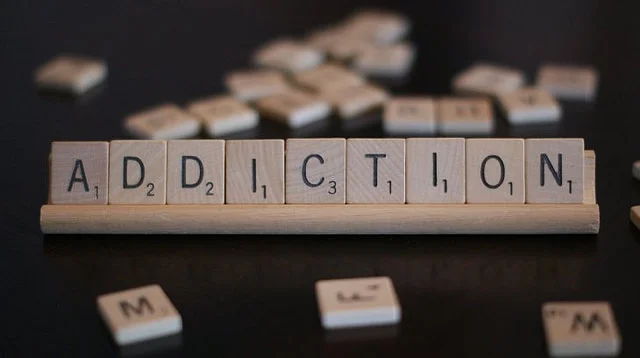Addiction: The Start of What You Should Know
IMAGE BY AIRPIX ON FLICKR
Article originally posted on thepracticeatx.com
What is addiction like?
Addiction is like the matrix. You remember Morpheus, sitting in front of Neo asking him to take the red pill, or the blue one? People who suffer from addiction eventually feel like whatever substance their addicted to becomes their entire world. Heroin. Cocaine. Alcohol – all of these substances become the world pulled over their eyes to blind them from the truth. What truth? That they’re in pain. Or that they’ve experienced trauma. Or that life outside of their substance is very, very hard. Put simply, addiction is a process that occurs when a person becomes dependent on a substance to self-medicate emotion, pain, loss, stress, trauma boredom or other challenges.
We often talk about addiction and it's relation to drugs, video games, gambling, food or sex. Some would say you could be addicted to any of those items and others might disagree.
Regardless of what form you believe addiction takes, one fact will always remain; Addiction sucks. It’s an epidemic in our country and affects the lives of millions of people. Surprisingly, we tend to avoid talking about it. Sure, you hear about addiction on the news and see addicted people in movies and TV but when it comes to everyday conversation, we don’t talk about it, because maybe…we don’t know what to say.
Why don't we talk about addiction?
Like other forms of mental illness, it’s a stigma. We don’t talk about addiction because it often hits too close to home and brings up feelings of hurt, guilt, shame and sometimes embarrassment. But when we avoid talking about addiction, we isolate the people who need to be heard and we continue to create silence where we should be creating connection. There’s an estimated 23 million people battling drug and alcohol addiction in the United States alone. That’s about one out of every 10 people and damn close to the total population of Texas.
To be honest, until I started working as a therapist at an addiction treatment center, I didn’t realize how far-reaching this illness spread, nor did I have a comprehensive understanding of how it affected addicted persons’ support systems.
Addiction needs to be discussed and normalized so that those affected by it feel safe to seek comfort from their friends, family and those around them when they need help. As a society, we can help bring addiction to its knees if we simply take a few minutes to educate ourselves about it.
What does addiction look like? Who does addiction target?
Addiction looks like a disease; like HIV, diabetes or cancer. While researchers and medical professionals are still unsure whether addiction should be classified as a disease, it seems to operate like one. Just like diabetes, addiction may be genetic, meaning your family history may increase your risk of addiction.
Like HIV, there is no magic pill or vaccine to cure it, only ways to manage it. Like cancer, treating addiction early is best to prevent worse outcomes. And finally, like any of the diseases mentioned already, anyone can be affected. Addiction does not discriminate between race, gender, religion, sexual orientation, economic status or even astrological sign. Addiction can affect anyone.
Why addiction is NOT a choice
No one chooses illness. This is true of addiction, just like it's true for other health challenges. While addiction usually begins with someone choosing a substance, the powerlessness over that substance isn't something anyone wants for themselves. It's a mental health challenge.
For someone in addiction, that first use stirs something up within them. It begins the phenomenon known in the 12-step community as the mental obsession.
The mental obsession is the notion that you have just found something [a substance] that has solved the answer to all your questions. Experiencing chronic pain? Here, take this, viola! All better! Tired of feeling alone, disconnected, awkward, anxious, fearful, angry, misunderstood, victimized, abused and/or unwanted? Not anymore you’re not. Suddenly – if only for a short time – you’re fixed!
But there’s a problem. The “fix” is only temporary.
Even when another option is provided, like therapy or medication, and problems start to disappear, an addicted person still poses the question of “Okay this is working, but what would happen if I drink now?”
How bad can addiction get?
When it gets really bad, drugs and alcohol become more than just a substance to be put in the body, they become the person’s identity; one, which overrides all other priorities like friends, family, and loved ones. Sometimes, the addict will still hear pleas to stop and calls of action to seek help, but feel powerless to do anything about it. This is because at that point the substance is no longer pleasurable, but rather it’s just a means to avoid, distract and/or numb problems and survive.
The vicious cycle only begins to compound itself. Addicts will start to feel emotions like shame, guilt and misery even when using, knowing as well that the substance that once saved them, the substance that became ingrained into their identity, is now killing them and they have no means to stop it.
It's at this point (hopefully) that they become, what those in recovery say, desperate for the psychic change. But it doesn’t have to be this way. Treatment can start sooner.
What else does addiction impact?
There’s so much to consider when it comes to addiction. Over the next month, I’ll be going more in depth about addiction and answering questions like, how does Addiction impact the family? How does Addiction affect marriage? And most importantly, how is Addiction treated? I hope you all enjoyed this post and I look forward to seeing your reactions and comments.
Kendall Campbell
Licensed Marriage and Family Therapist Associate
Counseling@kendallcampbell.com
(512) 920-3654
